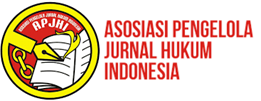Application of Anti-SLAPP (Strategic Lawsuit Against Public Participation) Principles in Environmental Case Solutions in Indonesia
DOI:
https://doi.org/10.70193/ijlsh.v2i2.250Abstract
The Anti-SLAPP (Strategic Lawsuit Against Public Participation) principle is one of the important principles in legal protection for environmental activism in Indonesia. This article discusses the application of the Anti-SLAPP principle in resolving criminal cases against environmental activists, with a case study of Decision Number 475/Pid.B/2020/PN Sgl jo. 21/PID/2021/PT BBL. This study uses a normative legal approach with descriptive analysis. The results of the study show that although the Anti-SLAPP principle has been recognized in the Indonesian legal system, its implementation still faces challenges, both in terms of regulations and law enforcement officers. This study recommends the need to strengthen regulations and increase the capacity of law enforcement officers in understanding Anti-SLAPP as part of the principle of protection for environmental advocacy.
Keywords: Anti-SLAPP, Environmental Law, Human Rights Defenders, Public Participation, Legal Protection.
Downloads
References
Arifin, A., Setiyanto, B. A., Mubiin, A. N., & Fatahillah, I. A. (2024). The Effectiveness of the Law on the Enforcement of Immunity Rights for Environmental Fighters in Indonesia. Bureaucracy Journal: Indonesia Journal Of Law And Social-Political Governance, 4(3), 2553-2569.
Diaz, M. R., Putri, J. K., & Jegiantho, J. B. (2021). Strengthening Anti-SLAPP Policies in Realizing Environmental Justice in Indonesia. Journal of Master of Law ARGUMENTUM, 7(2), 63-71.
Maharani, F., & Sari, I. (2024). The effectiveness of anti-slapp policies in Indonesia to prevent the criminalization of community participation in the protection and management of a good and healthy environment. Lex Omnibus: Journal of Constitutional Law and State Administration, 1(2), 14-30.
Sebastian, N., & Masyhar, A. (2023). Implementation of anti-SLAPP (strategic lawsuit action against public participation) in environmental management and protection. CREATION: Journal of Innovation and Community Service, 3(1), 8-18.
Soekanto, S. (2019). Normative Law Research. 1(1), 4.
Dianti, Y. (2020). Legal Problems and Approaches in Normative Law Research. Angewandte Chemie International Edition, 6(11), 951–952., 5–24.
Abdul Kadir, M. (2015). Law and Legal Research. Bandung : PT. Citra Aditya Bakti., 8(1), 52.
Christiani, T. A. (2016). Normative and Empirical Research Methods: Their Usefulness and Relevance in the Study of Law as an Object. Procedia-Social and Behavioral Sciences, 219, 201–207. https://doi.org/http://dx.doi.org/10.1016/j.sbspro.2016.05.006
M. Hamdan, Reasons for Criminal Abolition Theory and Case Study, PT Refika Aditama, Bandung, 2012, p. 31.
Adami Chazari, Interpretation of Criminal Law, Basis of Elimination, Aggravation and Mitigation, Crime of Complaint, Togetherness and Teaching of Quality, PT Raja Grafindo, Jakarta, 2009, p. 18.
Agung Wardana. 2021. "The Risk of Protecting the Environment: Strategic Litigation against Public Participation (SLAPP) in Post-Authoritarian Indonesia." Policy Matters, Special Issue 22 on Environmental Defenders Vol. 1: 44-67. https://www.iucn.org/commissions/commission-environmental-economic-and social-policy/resources/policy-matters
George W. Pring dan Penelope Canan. 1996. SLAPPs: Getting Sued for Speaking Out. Philadelphia: Temple University Press.
Raub Decisions Australian Gold Mining v. Hue Shueh Lee (Malaysia), Tungkum Ltd. v. The people of Loei Province (Thailand), and the NGO Caring for the Environment Pali vs. PT Pertamina EP Asset 2 Pendopo Adera Field (Indonesia)
Criminal Code.
Law Number 32 of 2009 concerning Environmental Protection and Management
Bangka Belitung High Court, Decision No. 21/Pid/2021/PT BBL, p. 32
The Panel of Judges explained that Article 66 of the PPLH Law contains two main elements, namely: (1) participation/expression; and (2) public interest (environment).
Hukumonline. (2022, February 3). Worthy of appreciation, these 8 decisions have a positive impact on the environment. Hukumonline. Retrieved from
Downloads
Published
How to Cite
Issue
Section
License
Copyright (c) 2025 International Journal of Law, Social Science, and Humanities

This work is licensed under a Creative Commons Attribution 4.0 International License.














